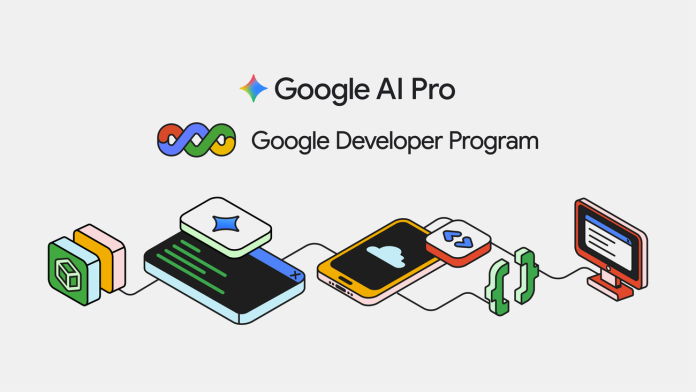For small business owners navigating the rapidly evolving world of technology, a new offering from Google presents an enticing opportunity to streamline the development of applications using generative AI. Recently, Google unveiled enhancements to its Google Developer Program (GDP) that promise to reduce the barriers between conceptualizing an idea and actualizing it in the market.
Imagine being able to transform a spark of inspiration into a fully functional application without the daunting costs typically associated with development. Google’s integration of GDP premium benefits into its Google AI Pro and Google AI Ultra subscriptions aims to turn this vision into reality at no additional cost. Subscribers can now take advantage of significant Google Cloud credits— $10 each month for Google AI Pro users and $100 for those on the Google AI Ultra plan.
This development addresses a common challenge faced by small business owners and developers alike: the friction that arises when transitioning from an experimental phase to production. As developers know, pinpointing the right prompts and adjusting generative AI models can feel magical. Yet, that excitement is often tempered by the daunting question: how do I turn this into a viable application without facing prohibitively high costs?
By streamlining access to essential tools and resources, Google aims to eliminate the “speed bump” in this journey. Previously, to utilize the powerful capabilities of models like Gemini 3 Pro, developers had to navigate a complex setup for Google Cloud billing, which created barriers to deploying projects successfully. Now, integrated cloud credits allow developers to focus on innovation rather than overhead costs.
The enhancements create an end-to-end workflow that supports small business owners from the initial idea phase to deployment. Here’s how this can work in practical terms:
-
Prototype and Build: Utilizing tools like Google AI Studio, entrepreneurs can refine their ideas and prompts. With the introduction of Google Antigravity, an innovative integrated development environment (IDE), developers can streamline their work further. The availability of an open-source AI agent in the terminal, Gemini CLI, empowers users to build applications efficiently.
- Deploy and Scale: Once an application is ready, Google’s monthly cloud credits come into play. Small business owners can seamlessly push their coded applications to production using services like Vertex AI or Cloud Run. Additionally, these credits can be applied to the Gemini API, amplifying the interaction capabilities between applications and AI agents.
Taking advantage of these offerings is uncomplicated for existing subscribers. Active Google AI Pro and Google AI Ultra users can quickly activate their enhanced benefits by visiting the Google Developer Program page. In doing so, they gain access to comprehensive resources, communities, and forums, fostering collaboration and knowledge sharing among peers.
While the prospects are promising, small business owners should also consider potential challenges. Firstly, leveraging these tools effectively requires a certain degree of familiarity with AI and development processes. Entrepreneurs who may not have a strong technical background might find the initial learning curve steep, necessitating investment in training or hiring skilled personnel.
Additionally, the growing reliance on cloud services involves considerations around data security and privacy. Business owners must ensure that they protect sensitive information and comply with relevant regulations as they deploy applications that leverage AI technologies.
In summary, Google’s latest offerings look to reshape how small business owners approach the development process. By removing barriers and incorporating essential resources into subscription plans, Google is poised to empower entrepreneurs to translate innovative ideas into tangible applications. As the landscape of technology continues to evolve, those who adapt swiftly can harness these advancements to enhance their business potential.
For further details, you can read about it on the original post here.
Image Via Gemini



